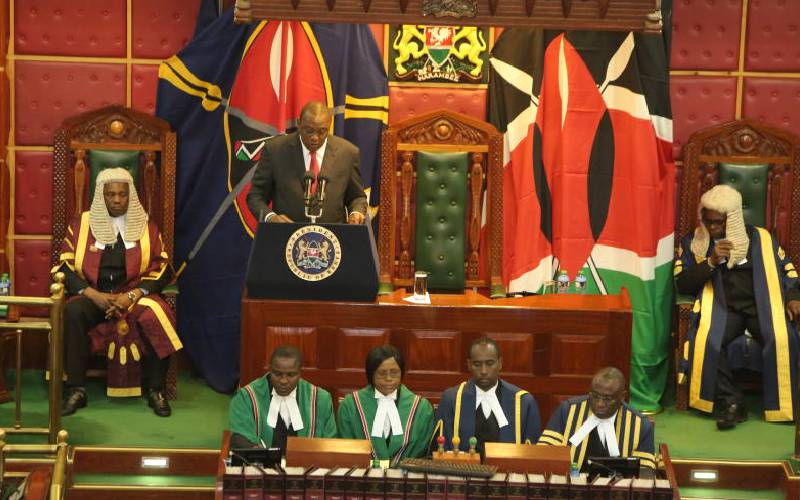×
The Standard e-Paper
Fearless, Trusted News

President Uhuru Kenyatta issues the SOTN address at Parliament on April 4, 2019. [Bonface Okendo]
It is the requirement of the Constitution that the president addresses the nation to apprise it of his government's achievements in the preceding year. Of course, there are challenges too, and the president is under obligation to acknowledge them as he outlines measures taken by his government to overcome them.